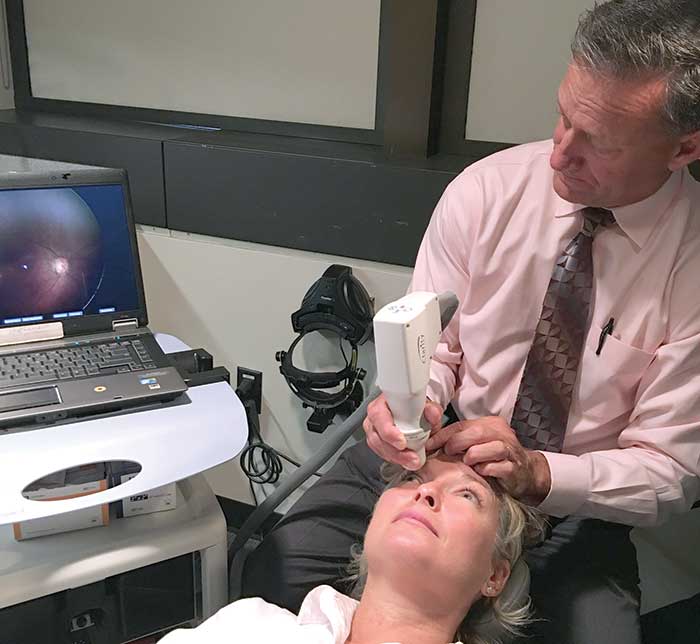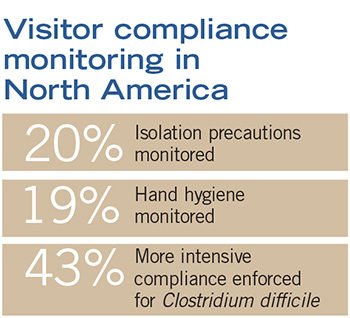
A retcam is used to examine the eyes of Zika-affected patients at Johns Hopkins’ Wilmer Eye Institue.
In response to the growing number of patients infected with the Zika virus, some U.S. hospitals are offering special care, and in one case conducting research on the virus that so far has baffled the medical community.
The number of confirmed cases in the U.S. has increased over time and health experts are concerned that trend may continue. The Centers for Disease Control and Prevention reported that as of Sept. 7, there were 43 mosquito-borne Zika cases, all in Florida and mostly in Miami-Dade County, and 2,921 travel-associated cases.
At the forefront of care and research is the new Johns Hopkins Zika Center, dedicated to caring for pregnant women and newborn babies and also men and women of all ages infected with the virus.
The Wilmer Eye Institute at Johns Hopkins is taking the lead on the Zika diagnosis and treatment because the virus can have a devastating effect on babies’ eyes in addition to the more widely reported brain abnormalities.
“The reason this became high on our radar screen is that more than half of babies in Brazil born with Zika have profound eye problems,” says Peter McDonnell, M.D., director of the Wilmer Eye Institute.
Adults are vulnerable to the virus’s impact, too. Babies represent 1 percent of all persons who are infected in Brazil of the 87,000 confirmed cases, McDonnell says.
“There is a misconception that this is a disease of newborns,” he says. “It is a disease that can strike persons into their 60s.”
For that reason, the center, which opened in August, includes several ophthalmologists, but also physicians and staff members from a number of adult and pediatric departments and divisions within Johns Hopkins Medicine and the Johns Hopkins Bloomberg School of Public Health.
The hospital wants to be prepared in the event of a surge in Zika-infected patients, McDonnell says. “We can always hope it will not be a severe problem, but our best guess is that it will become a major issue,” he says.
The center will focus on the assessment of long-term effects, as well as investigate new approaches to the prevention and treatment of the Zika virus infection.
“Our No. 1 priority will be focused on our patients, but our hope is that our work will also lead to many new developments in the effort to fight this potentially devastating disease,” says William May, M.D., co-director of the center.
Texas Children’s Pavilion for Women, Houston, opened a heavily used Zika clinic to ensure that pregnant women at risk of contracting the virus have access to a team of experts who can provide the latest testing and monitor their pregnancies, says Kjersti Aagaard, M.D., a maternal-fetal medicine specialist and vice chair of research in the department of obstetrics and gynecology at Texas Children’s and Baylor College of Medicine.
With its proximity to Florida and U.S. territories impacted by the virus, the hospital anticipated that patients in the Houston area and beyond would need the services of a specialized clinic.
The clinic is utilizing existing medical equipment and other space in the maternal-fetal department for consultation and testing. But that may change if demand grows as Aagaard expects.
In response to the number of Zika cases in its area, Baptist Health South Florida, South Miami, has added five diagnostic imaging centers to six outpatient laboratories as sites for persons to be tested for the virus.
Hospitals and health facilities cand find resources to help manage and respond to Zika cases from the CDC's Key Zika Considerations for Healthcare Settings and from the American Hospital Association.





